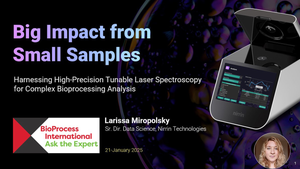
Polyplus has added a reagent to its existing product line developed specifically to enable large-scale viral vector manufacturing.
The French-biotech said the reagent has been developed to complement its existing FectoVir-AAV reagent line.
“FectoVIR-AAV is a transfection reagent, hence a key component of upstream manufacturing of viral vectors used for gene therapy,” a spokesperson for Polyplus told BioProcess Insider.
“FectoVIR-AAV transports plasmid DNA across the cell membrane. In gene therapy viral vector manufacturing, three plasmids are transfected at the same time in a HEK293 cell line. The cells use their own internal machinery to produce Adeno Associated Virus (AAV). One of the plasmids contains the gene of interest (GOI) that in a patient could replace a damaged gene; the AAV is really just a vector for the GOI, following several steps of downstream purification, these AAV become the drug product that is injected into patients.”
The firm claims to be the market leader in transfection reagents for gene therapy viral vector manufacturing and with FectoVIR-AAV customers can design “the most economical processes in a very short time and assure maximum patient safety.”
The spokesperson broke FectoVIR-AAV’s advantages down into four individual points, these are:
Superior performance: “Users see 3-to-10-fold titer increase compared to conventional PEI based transfection reagents.”
Scalable: “Robust and flexible to support small to large scale production.”
Cost-effective: “reduced cost per dose for therapy affordability [and] the possibility to increase batch sized up to 2,000 L will have a possibility to dramatically reduce the manufacturing cost per dose.”
Accelerated time to market: “AAV is a reagent that allows customers to robustly scale-up to larger volumes suspension cultures and therefore does not delay product launch due to extended process development time.”
Why now?
The new reagent is needed now due to the gene therapy industry seeking to increase titers and scale-up in order to increase viral vectors at larger volumes, the spokesperson told us.
“These customers are moving now from the discovery phase into pre-clinical and clinical manufacturing. The gene-therapy viral vectors that are manufactured will be tested in human patients. Therefore, the quality needs to be at the highest standards to assure patient safety.”
About the Author
You May Also Like








